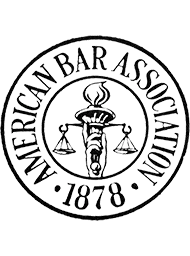Stage 1: Filing of post-sentence motion.
Within 10 days of sentencing, you ordinarily file a post-sentence motion that includes:
- a request for a judgment of acquittal (to find you not guilty),
- a request for arrest of judgment (to keep the judgment from being carried out),
- a request for a new trial,
- a request to modify the sentence, and/or
- a challenge to the lawfulness of a plea of guilty or nolo contendere or to the court’s refusal to allow a withdrawal of a plea of guilty or nolo contendere.
The post-trial motion must be filed if you (a) believe that the verdict was “against the manifest weight of the evidence,” (b) believe that the sentence was excessive and unreasonable, or (c) want to withdraw a plea of guilty or nolo contendere. If these issues are not raised in a post-sentence motion, they are waived or lost and cannot be raised later.
Because of the short deadline for the motion and the possibility that you might waive or lose some grounds for appeal, you must get to Criminal Appeals Advocates P.C.’s criminal appeals attorneys immediately after sentencing.
Within 10 days of the motion, the court will decide whether to order briefs and/or oral argument on the motion.
Stage 2: Notice of Appeal and Request for Transcript filed with the trial court.
If you filed a post-sentence motion (Stage 1), the court has 120 days to decide the motion. Within 30 days of the court’s decision or the expiration of the 120 days, whichever is sooner, you must file a notice of appeal of your conviction with the clerk of the trial court. The court may extend the time for its decision based on “good cause.”
If you did not file a post-sentence motion, you must file a notice of appeal of your conviction with the clerk of the trial court within 30 days of sentencing.
Pennsylvania has a simplified form to use for notices of appeal. You do not have to list all of your arguments on the initial notice that you file with the trial court.
At the same time you file the notice of appeal, you must also file a request for the official transcript of the trial.
Stage 3: Explanation of Trial Court Order (called a 1925(a) Opinion in Support of Order or 1925(a) Opinion).
After the notice of appeal is filed, the trial judge who entered the judgment of conviction and sentenced you must file a brief explanation of his or her order. This process has two parts.
Stage 3a: Statement of Errors. Because the notice of appeal does not require you to list every issue or ground on which you are appealing, the trial court judge ordinarily gives you 21 days after the notice of appeal to file a short statement of those issues or grounds called a 1925(b) Statement or Statement of Errors on Appeal. This is a critical moment in the appeals process because errors that occurred in the trial court that are not included in this Statement of Errors are waived or lost and cannot be raised at a later time or in another proceeding.
Because the trial transcript is often not available until after the 21-day period, the court usually extends the time in which you have to file your Statement if you need the transcript to identify the issues on appeal. The official court reporter will prepare the transcript of the proceedings, then you and your lawyer can review these materials to determine whether any errors occurred in your trial. It is important to work with an experienced appeal lawyer who is familiar with Pennsylvania criminal laws and court procedure because you will have to pinpoint problems in the original case and list them in your Statement.
Stage3b: After you file your Statement, the judge files a written 1925(a) Opinion of his or her reasons for upholding the conviction, usually addressing the issues you raised in the Statement.
Stage 4: Transfer to the Pennsylvania Superior Court.
After the judge files a written 1925(a) explanation of the order you are appealing, the clerk of the trial court will file the notice of appeal, the transcript of the proceeding, and the rest of the record of the trial with the Superior Court. The transcript is supposed to be filed within 60 days of the date you filed your notice of appeal, but that time may be extended if the court requests a Statement of the issues as described in Stage 3.
Stage 5: Briefs.
State 5a. Appellant’s Brief. If you appeal your conviction, you are the “appellant” and the state is the “appellee.” As appellant, you must file a brief, or written argument, with the Superior Court within 40 days of the filing of the record with the court OR at a later time set by the court.
The requirements for the brief are specific and complex. You must identify all the errors you claim occurred in the trial, cite the record of the trial where the error occurred, and make a legal argument for why this error should result in your conviction or sentence being overturned. If your brief fails to contain all the information required or is not in the form set out by law, the appeal may be dismissed. You need an expert in appellate law to complete this stage of the process or you may lose or waste your right to appeal your conviction.
Stage 5b. Appellee’s Brief. In a criminal appeal, the Commonwealth (through the prosecutor) is entitled to file a written Appellee’s Brief or argument stating why the trial court’s opinion should not be overturned. This brief must be filed within 30 days of the date that you filed your Appellant’s Brief.
Stage 5c. Reply Brief. Within 14 days of the filing of the Appellee’s Brief, you may file a Reply Brief responding to the state’s arguments.
Stage 7: Decision of the Superior Court.
A three-judge panel of the Pennsylvania Superior Court will give its decision on the issues on appeal and affirm the conviction or sentence, vacate the conviction and/or sentence, and/or remand to the trial court with specific instructions on the action to be taken on your case.
Stage 8: Application for Re-argument.
If the three-judge panel of the Superior Court denies your appeal, you have 14 days to request re-argument before the three-judge panel or before the full Superior Court, which is known as an “en banc hearing.” Requests for en banc hearings are not a matter of right and are rarely granted. You must show a compelling reason for the re-argument; for instance, that panels of the Superior Court have given different opinions on the same issue or that the panel misapplied relevant law.
Stage 9: Petition for Allowance of Appeal to the Pennsylvania Supreme Court.
If the Superior Court denies your appeal, you may submit a petition within 30 days of the denial to have the Supreme Court hear your appeal. You do not have a right to have the Supreme Court hear your appeal; the Court takes only the cases it wishes to take. Usually, it will take cases involving interpretation of the Pennsylvania Constitution or statutes or cases involving questions of great public importance.
Post-Conviction Relief
Pennsylvania’s direct appeal process is described above. If a direct appeal of the conviction is unsuccessful, you may file what is known as a Petition for Post-Conviction Relief (also known as a PCRA petition) in the trial court. This is an indirect or “collateral” challenge to the conviction and/or sentence. Post-conviction relief is available only if you were convicted of a crime you didn’t commit or are serving an illegal sentence. It is the only way to challenge a conviction outside of a direct appeal in Pennsylvania and takes the place of habeas corpus.
To get post-conviction relief, you must show that you were convicted of a crime and that the conviction or sentence resulted from
- a violation of the Pennsylvania or U.S. Constitution that undermined “the truth-determining process” so that the verdict of guilty is not reliable,
- ineffective assistance of trial counsel that undermined the “truth determining process” so that the verdict of guilty is not reliable,
- a plea of guilty that was unlawfully induced, or
- the government’s unlawful obstruction of your right to appeal.
Post-conviction relief is also available when
- new evidence is discovered that would have changed the outcome of the trial,
- your sentence is greater than the maximum allowed, or
- the court lacked jurisdiction over your case.
Issues that were raised and denied in another proceeding (such as direct appeal) cannot be raised in a PCRA petition. Issues that could have been raised but were not may support a PCRA petition if the failure to raise them was not the result of rational, strategic, or tactical decisions by your trial lawyer.
PCRA petitions start in the trial court and must be filed within one year of the date the judgment of conviction becomes final. This can be after all appeals and requests for reconsideration have been exhausted or when their time limits have expired. Exceptions to the one-year rule apply when
- the government interfered with the presentation of the claim and the interference violates the Pennsylvania or U.S. Constitution,
- the facts supporting the claim were not known and could not have been discovered within the time for filing, or
- the Pennsylvania or U.S. Supreme Court decided a case that established a constitutional right, and the right was made retroactive.
In such cases, a PCRA petition must be filed within 60 days of the date the claim could have been presented.
Post-conviction petitions are complex and require representation by experienced appellate counsel who can successfully navigate all the laws and rules that apply. A PCRA petition is often a defendant’s last hope of overturning a conviction, so having a superior appeals attorney can mean the difference between prison and freedom.










